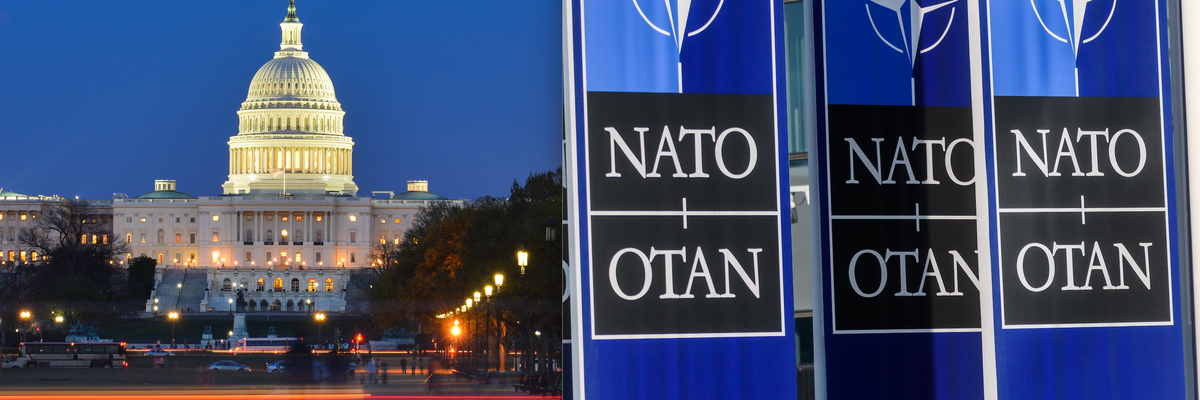When faced with questions relating to America’s role in the world, we would be wise to heed the advice of our Founding Founders. George Washington urged distance from the “frequent controversies” of Europe. Thomas Jefferson pursued a course of “peace, commerce, and honest friendship with all nations, entangling alliances with none.”
As NATO continues its post-Cold War expansion, it is worth pointing out that, by its own terms, the NATO Treaty does not commit Americans to the military defense of our allies. To that end, I introduced a resolution reasserting that Article 5 of the NATO Treaty does not supersede Congress’s responsibility to declare war or authorize military force before engaging in hostilities.
For decades, many legislators have incorrectly interpreted Article 5 as an obligation that unquestionably commits the United States to provide military support should a NATO ally be attacked. To support their assertion, those who pine for a perpetual Pax Americana paraphrase Article 5 of the NATO Treaty by stating that, “an attack against one or is an attack against all.”
But that is not exactly what Article 5 states. Article 5 states, “The Parties agree that an armed attack against one or more of them . . . shall be considered an attack against them all and . . . each of them, in exercise of the right of individual or collective self-defense . . . will assist the Party or Parties so attacked by taking forthwith . . . such action as it deems necessary, including the use of armed force...” In other words, NATO allies are committed to assist each other in the event of an attack, but military action is not mandated, and the United States maintains its sovereign capacity to determine what kind of response is warranted.
Furthermore, Article 11 of the NATO Treaty states that the provisions of the Treaty are to be carried out in accordance with each country’s respective constitutional processes.
The Constitution grants to Congress the sole authority to determine where and when we send our sons and daughters to fight. We cannot delegate that responsibility to the president, the courts, an international body, or our allies. This is a constitutional responsibility that all members of Congress have freely taken and one that the American people expect us to uphold.
I proposed the same text of my resolution when the Senate was considering the inclusion of Sweden and Finland into NATO. At the time, some of my colleagues questioned my approach, and one in particular argued that that my proposal would demonstrate to our allies that the United States is going “wobbly” on Article 5. I would argue that our men and women in the field do not want Congress to go wobbly on the Constitution.
Over the years, there has been a disturbing trend of executive overreach, undermining the checks and balances that our founders established to prevent such abuses of power. Collective defense should not be used as a pretext to bypass the constitutional requirement for congressional approval. By clarifying that the NATO Treaty does not supersede the Constitution, we can respond to those who would deceive the public about what America’s commitments are and renew our commitment to the highest law in the land. Respecting congressional war powers does not hinder our national security or imply a disregard for treaties. On the contrary, it ensures that the decision to use military force is subjected to rigorous scrutiny and debate by the representatives of the people, just as our Founding Fathers intended.
We must continue to show our fealty to the Constitution and elevate diplomacy to the forefront of United States foreign relations. For years I’ve led the fight to return war-making powers to Congress where they belong, and I'm proud to continue those efforts by introducing this resolution with support in the Senate and House of Representatives. It’s long past time that we respect the balance of power and reassert Congress’s voice.
















